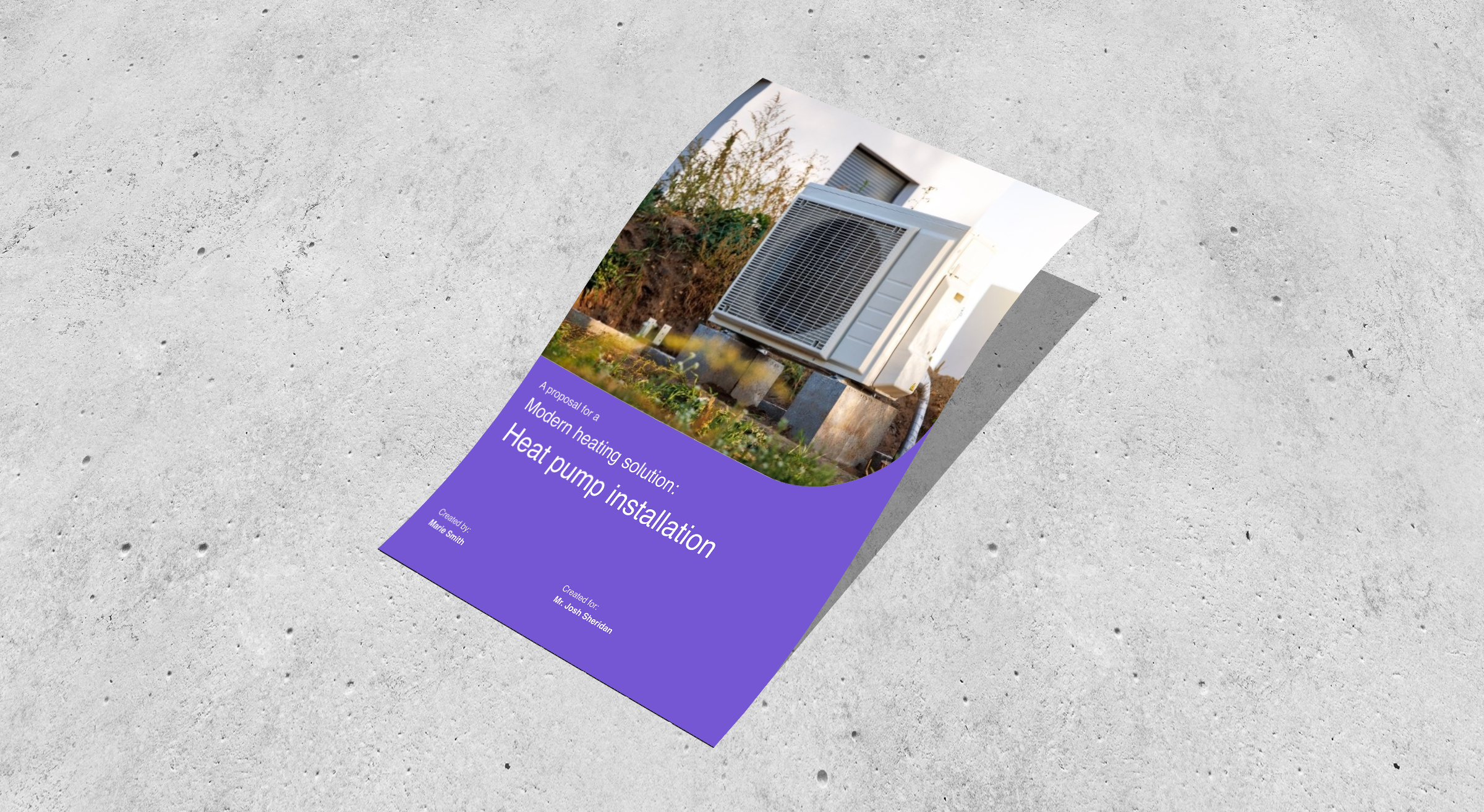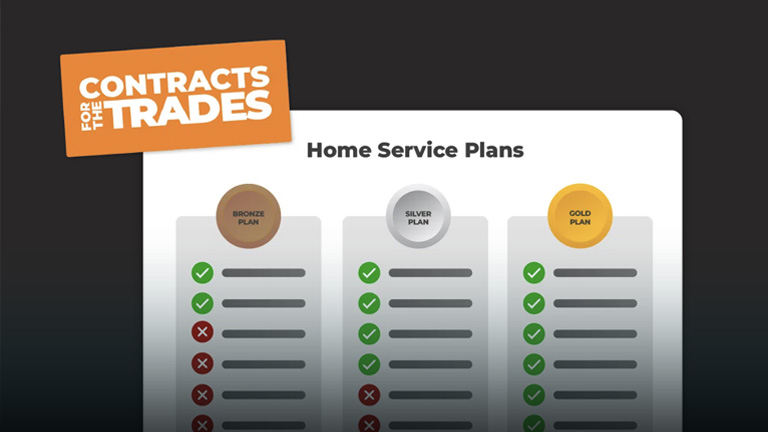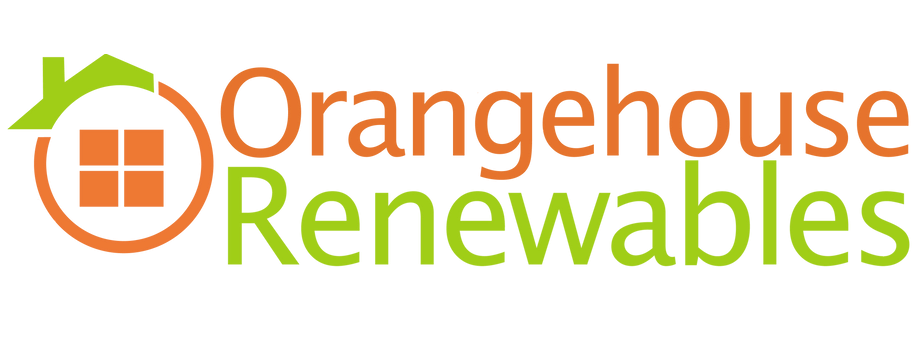A Guide to Home Service Plans
How Trades Businesses Can Build Recurring Revenue With Service Contracts
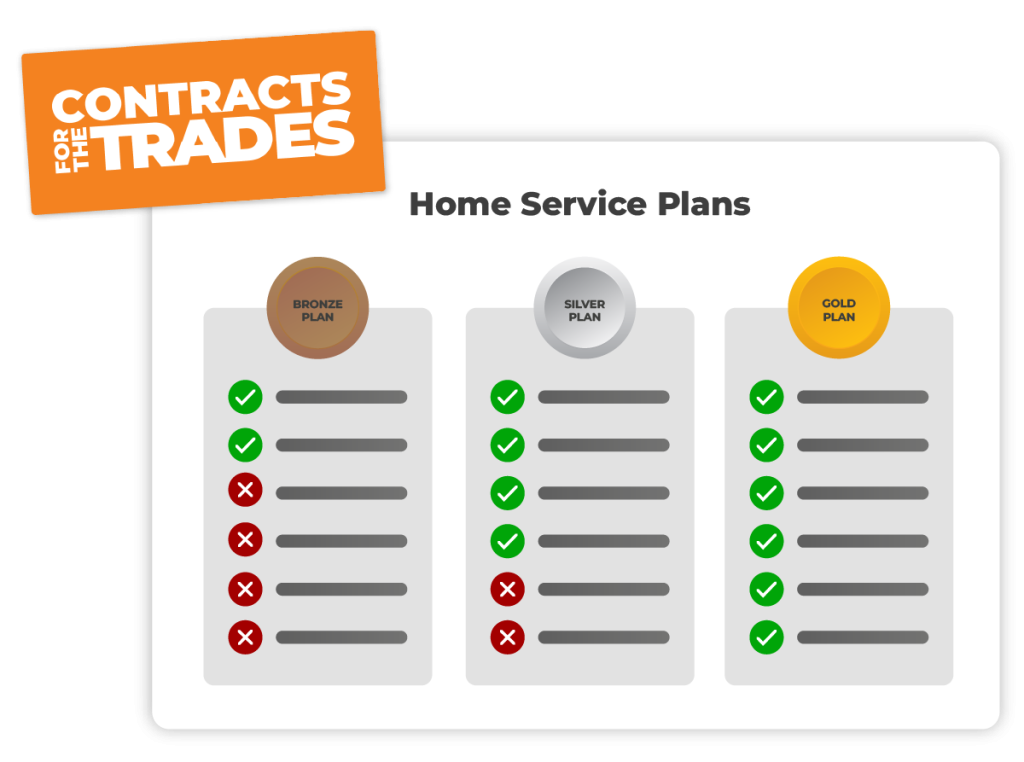
Understanding Home Service Plan Management
Master the fundamentals of residential service contracts.
Reliable recurring revenue is the key to growth for residential service businesses. After all, contracted maintenance and service appointments are guaranteed profit opportunities. From initial enquiry, to a residential customer signing a maintenance agreement, and renewals, service contracts provide a steady revenue stream.
If your business is ready to fully harness its growth potential, creating a comprehensive home service plan contract for your trades is where you need to start. Dedicated workflows will make it effortless to manage contracts while ensuring customer satisfaction and loyalty.
This guide will walk you through the key steps to develop an effective contract structure, tailored to meet the unique needs of your services. We’ll divide the task into three manageable parts, focusing on…
If your residential service business is ready to take full control of your growth and offer unmatched customer service, discover how you can get started with implementing a digital service contract strategy!
What is Home Service Plan Management?
Home service plan management is process of actively carrying out a contracted service agreement with specific customers.
The plan, which is agreed to by both parties, outlines which services should be provided, the expected standard of quality, and the service timeframe.
In simple terms, residential service contract management is finding a middle ground between a customer’s expectations and the provider’s capacity to satisfy them. Service Level Agreements (SLAs) can be helpful in assuring a certain standard of quality, but aren’t a necessity in the residential area.
Why Home Service Plans are Important for Your Field Service Business
If your business wants to better analyse your services, efficiently expand your customer base, and manage recurring revenue and payments, a domestic contract management platform can help.
Now more than ever, residential service companies are turning to digital home service plan software to manage their service contracts. With the goal of business expansion, this solution enables businesses to increase the amount of customers under contract without needing to hire additional team members.
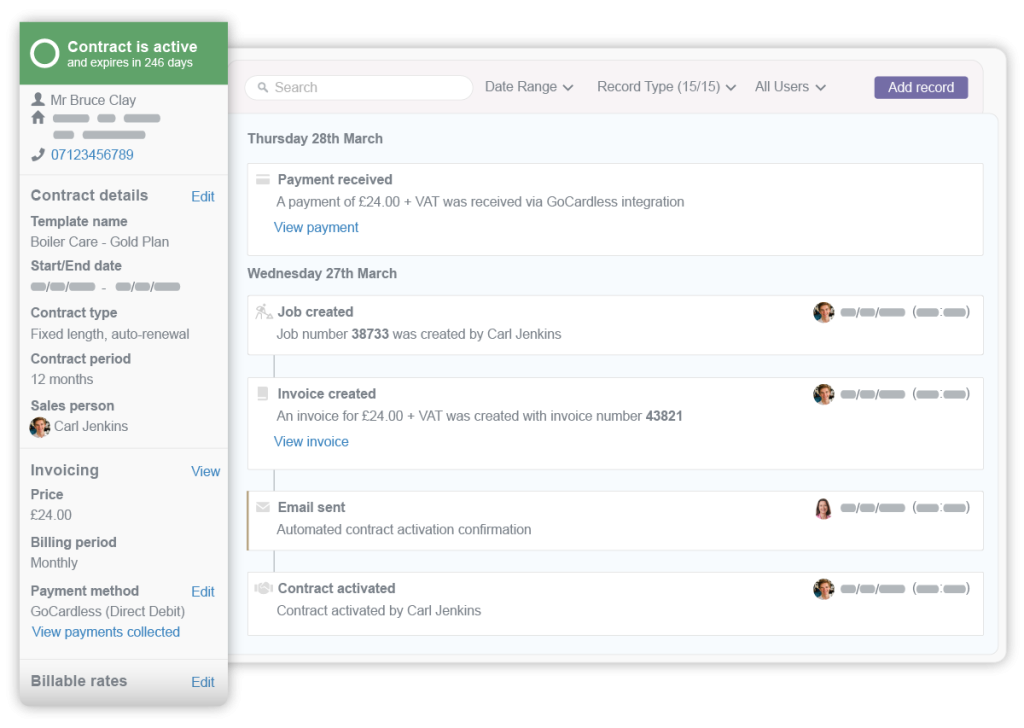
An invaluable benefit of a service contract management platform is that it helps admins identify which contracts are due to expire, set up renewal options, and contact the customer. You’ll always be in the know, so you can act immediately. Furthermore, software ensures company information is centralised, meaning know-how and data can be easily located and shared when training new hires, or when team members are sick, on holiday, or leave the company.
Ultimately, as businesses grow, it becomes more and more impossible to effectively manage contracts manually. That’s why when planning for the future, digital contract management provides the structure decision-makers need to think critically about their offerings and plans. With organisation, they can define and outline the standards and services provided in their residential agreements. This can include billable rates, discounted parts, call-out systems and fees, terms & conditions, liability, and how to handle customer payments.
Another benefit is that a digital solution makes it easier for teams to evaluate performance. Decision-makers can understand which contract types and services are most successful.
Let’s start with setting your billing and payment terms; after all, you’re in the business of making money!
How Do You Get Paid?
Learn how to accept digital recurring payments.
Payments is where home service plans can fall apart quickly. You can build beautiful documents, market them, and detail all your services and discounts, but it’s a wasted effort if you can’t reliably get paid.
The first aspect of contract management to consider is how your organization wants to be paid. It’s also important to think about what’s most convenient for your customers. This balance ensures everyone’s needs are met.
Invoicing and Recurring Billing
Simultaneously, invoicing and billing are the most critical parts of any business, yet they’re the biggest roadblock for trade businesses getting started with a service contract strategy. When handling thousands of jobs a month, it can be overwhelming to manage invoicing and ensure your team is paid on time.
Many businesses struggle with how to structure and manage monthly billing. Contract management can become complicated when you need to create an invoice every month and charge the customer without a job attached to it.
That’s why home service plan software is invaluable to growing residential contracting businesses. These platforms help admins create and customise payment schedules.
Managing Debt Chasing
Worrying about how your business handles non-paying customers is something no business looks forward to. Chasing payments becomes less and less cost-effective the smaller the bill is. The effort of debt-chasing a £15 monthly payment isn’t an economic priority for many businesses.
These charges may be insignificant at the moment, but they do add up.
Automated reminders can help relieve admin burden, and eliminates the need to remind customers to pay their invoice. Further, providing digital payment options within the reminder message makes the payment experience even more convenient for customers. This can help businesses maintain good customer relationships while following up on their payments.
Payment with Direct Debit
Offering digital payment options is essential. The best job management platforms allow teams like yours to enroll customers in automatic payment plans. Not only does this minimise pressure on your customers to pay manually each month, it greatly reduces tedious administrative burden.
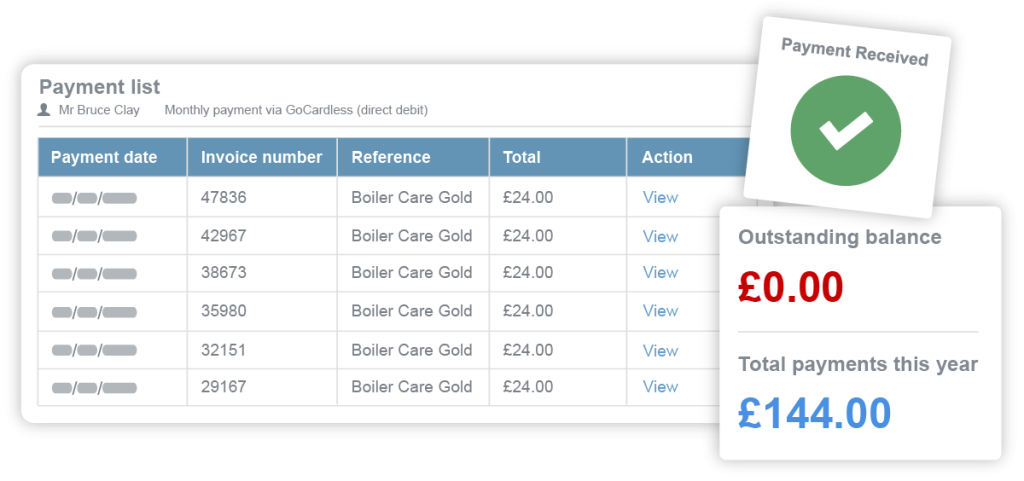
Accepting autopayments through a provider like GoCardless greatly improves the billing experience for customers while ensuring your company is paid each month. Not only do automated billing systems and modern ways to pay help customers pay on time, but they also improve the payment experience for customers. This convenient solution makes it easier to guarantee contract renewals.
Handling Payment Failure
Not all customers skip their bill on purpose. In instances when a payment fails due to wrong details or insufficient funds, these are additional costs for the business. Therefore, your team needs a strategy on how to avoid them in the first place.
If a client purposely skips their payment, having a contract with clearly outlined services and payment schedules protects your business.
However, before your team jumps to pursuing legal action against your client, try to work the situation out first. Make a dedicated effort to get back in contact with them, and come to a peaceful solution; it may be an honest mistake on their end!
In summary, here are some questions to ask yourself when determining your invoicing strategy:
- How are we invoicing for the contract, or a job under contract?
- What is our billing period? Will we charge customers monthly?
- Are our prices fixed, or will they change per customer?
- Do we want to offer discounts if customers opt to pay yearly?
- How will we handle pursuing non-payments and disputes?
What to Include in Your Home Service Plans
Learn what goes into building the best contracts.
Understanding how to outline your services, discounts, call-out structures, and more, can be daunting without the right structure.
Comparing your businesses to others around you is a great start, but take their home service plans with a grain of salt. For instance, many service businesses opt to start by offering three-tiered plans, such as “Bronze”, “Silver”, and “Gold”. Others may opt for six or more. If your team offers a wide variety of services, a larger assortment of plans can be valuable.
Beyond choosing the number of plans, determining which services, SLAs, and pricing structures for each can be difficult. Your team needs to strike a balance between affordability and service coverage. You also need to set healthy margins to ensure each service is profitable for the business.
Consider your billable rates. This is what you will charge customers and the profits your business will make. These can include
- Labour rates by job description, job priority, shift, and business units
- Pricing items with differing rates
- Parts margins and pricing
- Renewal and cancellation timelines
A great service contract management software should enable your team to customise all financial details, such as the ability to mark parts prices up, down, or set them as ‘free of charge’. Next-level personalisation enables businesses to diversify their offerings, making it easier to grow.
Define Your Services
A good way to get started thinking about contracts is by outlining the services your plumbing and heating business offers.
- What services do we provide? Which of them will we offer in contracted plans?
- Do we offer emergency callouts or any specialised services?
- What service level agreements do we want to provide?
- How many contract plans do we want to offer?
- How do we want to price our plans?
- What terms and conditions will we outline in each contract?
As you work to distinguish your offerings per plan, circling back to how to tailor contracts to your customers’ needs can help. For instance, if your service area is prone to turbulent weather, providing various emergency callout options will make your contracts practical and desirable.
What to Display on Your Website
Your website is likely the first instance customers will be introduced to, and review your plans. How you choose to name, tier, and display your plans all influence what they select.
As mentioned previously, some businesses opt to name their plans “Bronze”, “Silver” “Gold”, “Platinum”, etc. Others choose to name their offerings based on a specific service type, such as “Yearly Boiler Servicing”, “Emergency Call-Out”, “Time and Temperature Control Monitoring”, etc.
There isn’t a right or wrong option, per say, but A/B testing can reveal if a particular naming option is more popular.
Even more, how you visually display your plans is important. It’s good practice to outline your plans side-by-side with a checklist of what is and isn’t offered. This makes it easier for customers to compare plans and choose the best option for them.
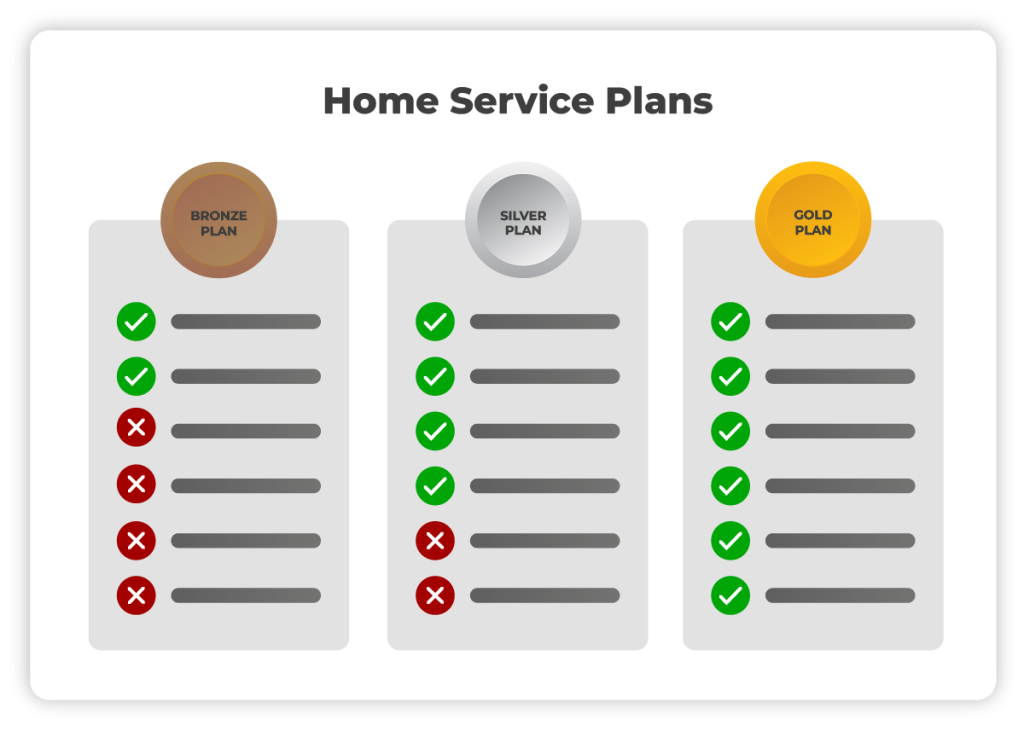
Further, if your team wants to sell a specific plan, marking it in a different colour and placing it between two other plans can make it more desirable.
Your website has a considerable impact on the business your company attracts. The information you share, and how you present it can make the difference between a prospect choosing a competitor, or your team.
What to Display in Your Contract Documents
Naturally, your home service documents will need a bit more detail. Here is where you should fully outline your full offerings and conditions. Strong company branding will reflect your company’s professionalism and help you stand out. While being eye-catching is important, this document should efficiently cover everything your residential customers need to know.
Don’t forget about the importance of including clear terms and conditions; they’re the backbone of your contracts. They outline your team’s obligations to customers, the scope of the works, fees and expense timelines, disputes and contract termination, contract renewals, and more. Learn more about how to write winning service tenders here!
Further, you should use this section to address liability and insurance coverage. Remember, you need to protect your business while reassuring customers. The more you outline, the easier it will be to build customer trust in your team.
A Digital Home Service Plan Management Platform
What’s most important, however, is utilising a system that can help your team effectively manage contracts. Overseeing and executing service agreements is easier with a digital contract management platform.
A home plan service software with a set-up wizard can guide admins through the creation of a contract while enabling them to think critically about your services.
Naturally, your contract management platform should be able to host basic details such as contract name, description, category, type, period, and company branding. Even more, an all-in-one job management system will allow you to build contracts for and assign contracts to specific contacts in your CRM.
When searching for a solution for your business, software features to look for include bolt-ons, SLAs, asset maintenance, job details, customer communication, and renewal information. Let’s review each one.
Bolt-On Services and Plans
While many of the residential services and contracts you will provide will be largely the same, it’s important to have the option to customise contracts when necessary. Including bolt-on options is a great way to stand apart.
These are additional services that can be bought alongside a specific plumbing, heat, and gas contract; this will increase the monthly price for the contract.
For example, customers can add temperature control monitoring to their gas, plumbing, and heating home service plan. Or, if a customer selects a boiler care plan, they may be interested in selecting a plumbing service plan too.
Expanding your services and offerings boosts the profitability of each customer. Further, custom options make it easier to suit their needs, without additional administrative burden.
Asset Maintenance
Tracking and maintaining customer assets is important for all trades businesses. Managing assets and the contracts they’re associated with can be made easy with the right software. Your team should review these questions:
- Do our service plans include only specific assets?
- Do we cover additional assets added to the property during the contract period?
- Are there assets and appliances our team cannot service?
Asset maintenance software can help engineers record valuable asset information while on site, and digital records can be easily accessed by admins at all times. Even more, when pairing assets to contracts you can set the system to recognise if certain assets are allowed on certain contract types, and automatically add assets to a contract if they are added to a certain appointment.
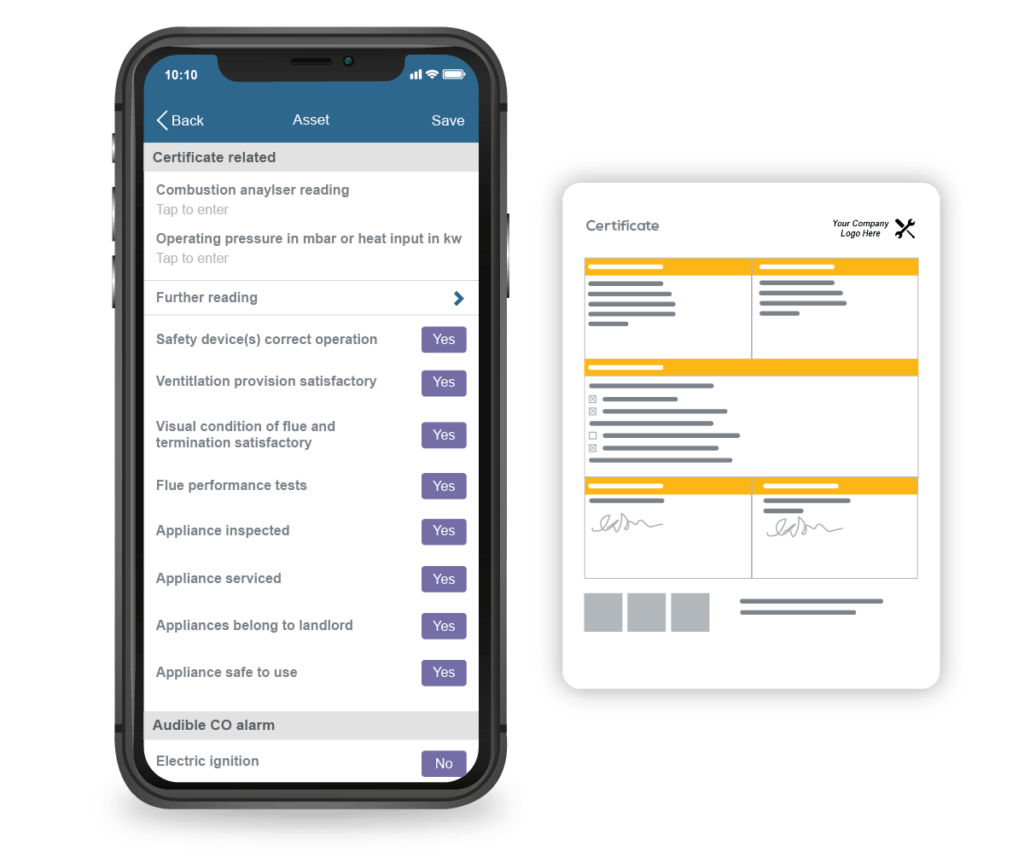
Certainly, residential asset management and downtime don’t carry the same level of risk as commercial or industrial maintenance, but domestic customers still deserve a high level of service.
Job Details
Setting custom rules around your contracts and offerings is a great way to stand apart. Further, software can help your team stay on top of specifics without additional stress.
Your team can start ironing out contracts by thinking through these questions:
- Do we want to set timeline rules for claim days?
- Do we want to manually or automatically create jobs?
- Do we want to set a preferred date range of when we want to carry out the job?
- Do we want to send service reminder messages manually or automatically?
- Do we want to automate confirmation messages to customers?
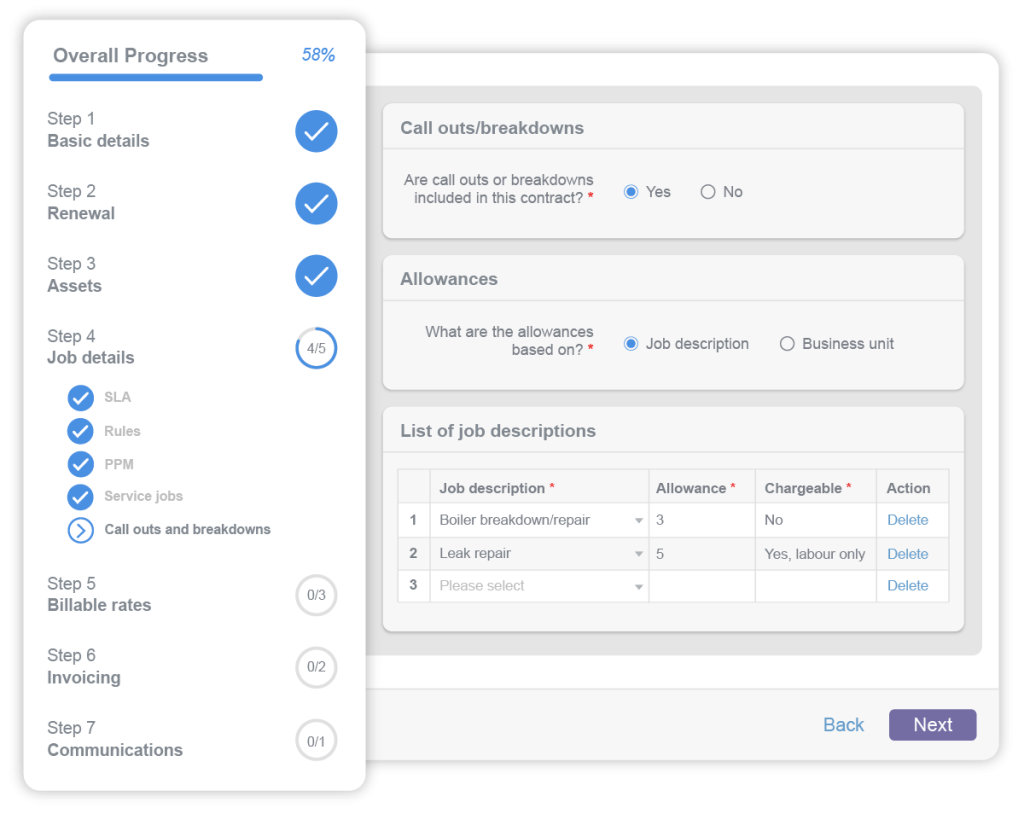
Some home service plan software, like Commusoft, make it easier to personalise contracts. For example, if you offer boiler service jobs in your contracts, you can set the preferred date range outside of your busy season, set the system to automatically create the job, and send an automated service reminder message to customers so they can book.
Learn more about seven ways service reminders can help grow your business here.
This level of customisation allows admins to efficiently monitor contracts while providing unmatched plans.
Customer Communication
Inherently, staying in contact with and updating customers is essential. Home plan management software can help your entire team better understand how to clearly explain the benefits of your service plans, streamline the enrollment process, and maintain ongoing communication. After all, effective and meaningful communication is key to enrolling and retaining customers. Consider these questions:
- What call-out and breakdown options are we including in each contract?
- When should the contract start?
- What time of year do we want to book the appointments?
- How will we know if a customer is under contract or not?
- How will we know if certain services are included or not?
Software can make it easy to customise allowances for each contract. For example, your boiler maintenance contract can include two breakdowns that cover five specific job descriptions. Further, you can modify how you charge for them.
Customer communication is always centralised with a digital platform. This means you can avoid human error, better facilitate employee handover, and transform both internal and external communications.
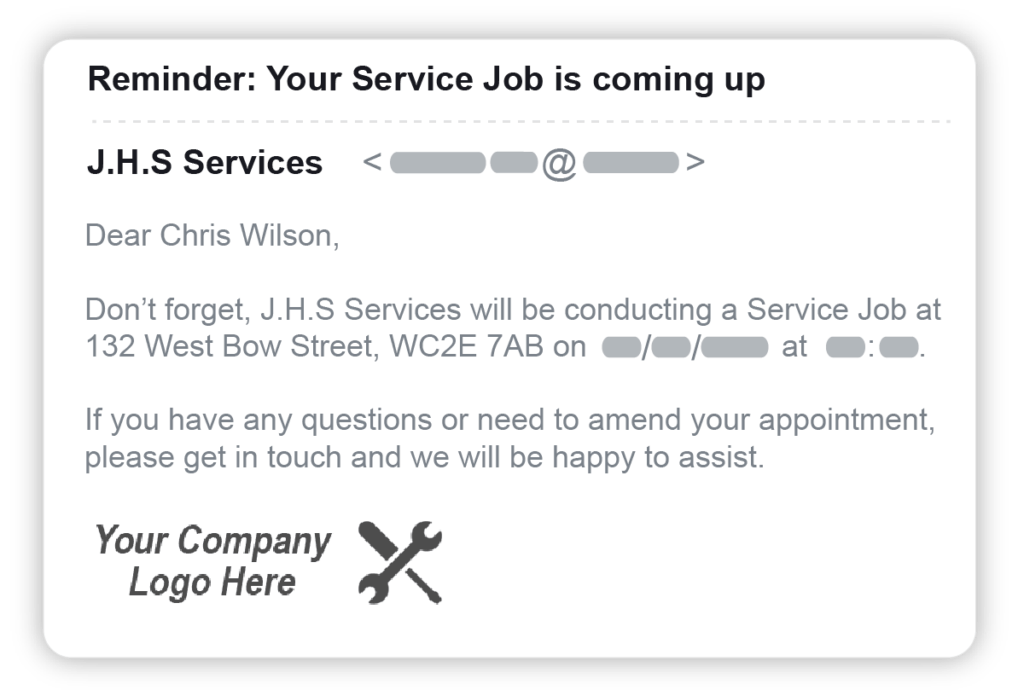
Whether you’re reminding customers to book their service, breach an SLA, or want to send them renewal options, transparent and quick communication makes a tremendous difference. Software can help your team automate communications and personalise messages, so you can prioritise customer needs without extra admin.
Renewal Information
Both your business and software need to be able to handle contract renewals. After all, recurring revenue is pivotal to company growth. The system should be able to help your admins determine the following:
- Are your contracts fixed-length?
- What is the renewal type?
- How many days before the contract expires should the contract be generated?
- How many days before the new contract starts the new invoice get generated?
Not only will these features help your team think critically about the ins and outs of the plans you’re providing and remove administrative burden, they allow your team to offer custom solutions for your customers.
A home plan software retains your information and settings, ensuring nothing falls between the cracks and that new contracts can be built more easily.
Managing Volume
Discover how to handle more customers under contract.
It’s a numbers game. Ultimately, the more residential customers under contract you have, the more profitable your business will be. Offering home service plans directly supports company growth.
Selling Home Service Plans
Selling contracts, of course, relies on your team’s ability to convince customers to sign up for them. A sales process differs for every business, but there are steps your team can take to better your chances. You can assess and optimise your sales journey by reviewing these questions:
- Is our company branding professional and memorable?
- Are our terms clearly listed and easy to understand?
- Are our plans priced both realistically for customers and profitably for us?
- Are we upselling the right bolt-ons and complementary plans?
It’s all about value. The value your team offers customers should always be the main focus. But this needs to be balanced with the monetary value your customers bring to your business. Naturally, contracts are so significant because they allow you to make more money per customer.
Does Good, Better, Best Pricing Help You Sell More?
As we covered earlier, your website and documents have a considerable impact on your sales. Be sure to pay extra attention to how you present and market your services; increased visibility can have a large impact on sales. Furthermore, as you examine your offerings, you can identify opportunities to sell complementary services.

While it’s tempting to entice customers by pricing your plans as the cheapest option on the market, it’s more beneficial to emphasise your team’s reliability, dedication to quality services and parts, and long-term monetary value of your plans to customers. If customers truly believe in your services and trust your team, they will be more willing to pay.
Renewing Home Service Plans
While it’s important to gain new customers under contract, retaining them is essential. When contracts are due to expire, consider these points:
- Do we want our plans to automatically renew?
- How soon before a contract expires do we want to reach out?
- Can we provide additional value to this customer?
Most residential home plans last one year. Naturally, your team should be planning ahead and tracking when contracts are due to expire. Like you, your customers have busy schedules, and might not have their contract expiration date in their calendar. As the service provider, you can prove your customer care and demonstrate your recordkeeping by creating contract renewal workflows.
Sending them an automated reminder message 30 days out, and a gentle reminder to extend can improve your renewal rates. You can take your reminder messages to the next level by examining their history with your team and offering relevant add-on services and plans.
A dedicated reminder and contract renewal strategy ensures customers worry less about staying on top of their maintenance schedules and will win you their continued business.
Scaling Your Residential Service Business
One of the biggest strengths of software is that it empowers teams to create repeatable processes, making it easier to build, assign, and manage new contracts. This level of organisation can give your team the confidence to set big goals and exceed them.
As your business grows, a great management software can help your team serve more customers without the need to drastically expand your workforce. But when hiring is necessary, information is easy to access and share, streamlining onboarding.
These questions can help your team as you plan for the future:
- How can we better optimise scheduling?
- What processes can we automate?
- What can we learn from reporting?
Scheduling
Perhaps most significantly, home service software can help you take control of your job scheduling, meaning service dispatchers can book services with a purpose. This system organises all required appointments and removes pressure by ensuring everything necessary gets scheduled.
Further, dispatchers can analyse your entire year, determine your biggest and slowest seasons, and prioritise scheduling maintenance and inspection appointments during slower months. This ensures your business hits revenue targets all year long while freeing up slots in your busy season to accommodate emergency call-outs and repairs. Ultimately, engineer calendars significantly impact company profits; make sure you have the right support to streamline them!
Automation
Remember, home service agreement software should make contract management much easier for your entire team, not harder! Automated tools, such as service reminders and invoicing, have a substantial influence on productivity and growth.
Automation drastically decreases time spent on tedious, often repetitive, tasks. For example, rather than typing, or copying and pasting a new service reminder email for each customer, office managers can set automated reminders to trigger X days before the service is due. Further, they can include tagging fields, which ensure the message is perfectly customised for each customer.
It may seem small, but streamlining these customer interactions, while maintaining accuracy, enables your team to handle higher-value tasks, like looking into business financials or hiring new team members.
Reporting
Understanding your business numbers and financials is crucial for growth. When shopping for different software, be sure to look into their reporting capabilities. After all, without access to necessary data, you might not know how profitable your contracts are. Or, you may discover they’re not generating any revenue.
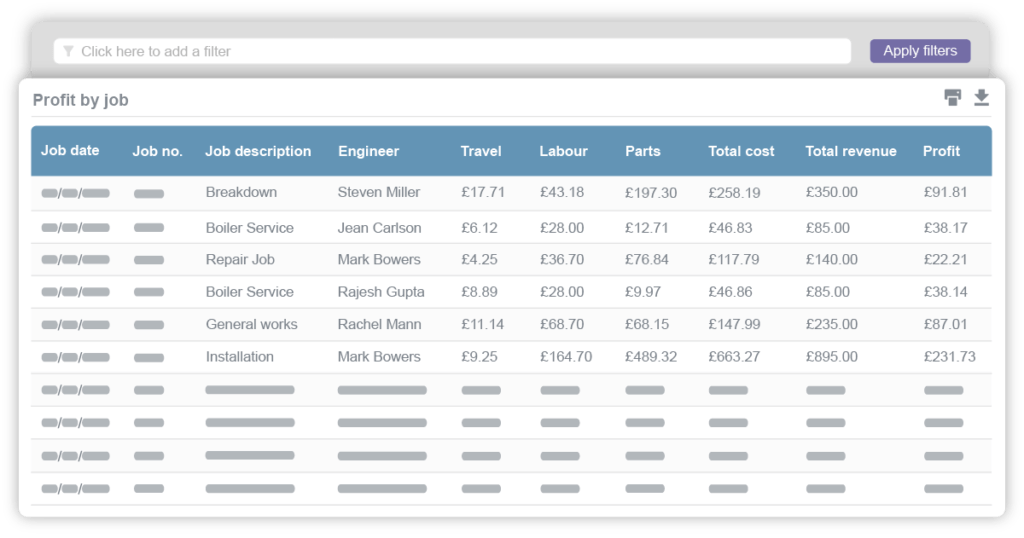
The right reporting tools ensure you understand where your business performs strongest, and areas that need more attention. For example, a reporting dashboard can prove that a certain service type, such as yearly boiler maintenance is your most popular offering. Or, business directors could discover your call-outs aren’t charging the correct labour rate, or that your parts margins are too slim. Tangible insights like these enable decision-makers to set sensible goals and targets for the entire company.
Getting Started With Home Service Plan Software
Take your contract management to the next level!
From understanding how to set up and accept digital recurring payments, to taking full control of scaling your business, a digital platform can optimise all aspects of contract management. Providing much-needed structure, organisation, and automations, home service plan software empowers service teams like yours to stand apart from the competition.
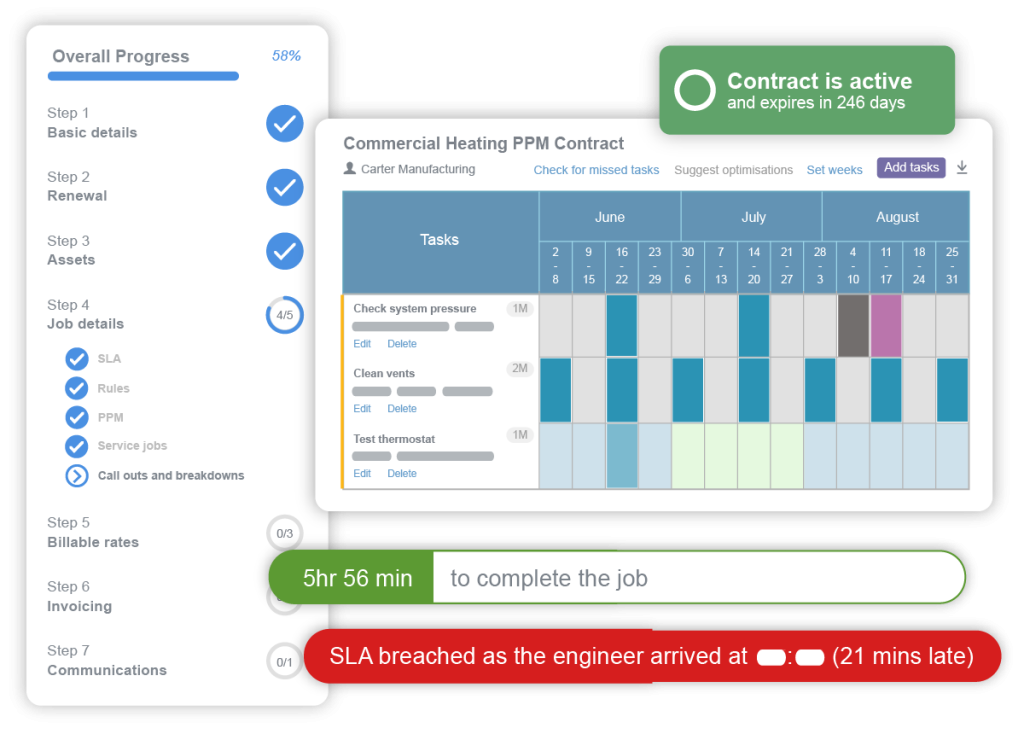
With complete control over your contracted terms, customer payments, and service schedules, your team can scale your operations your way. Contract management has never been easier. Discover Commuosft’s service contract management software today!

